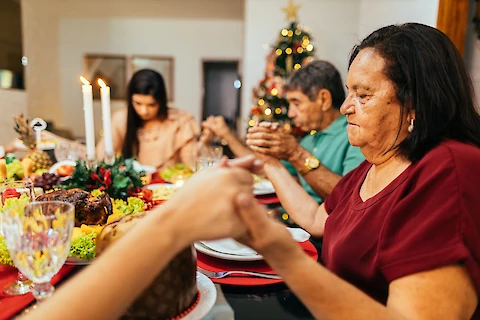
Family traditions are the threads that hold the fabric of our familial tapestry together. They are anchors in our shared history, providing a comforting sense of continuity in an ever-changing world. These traditions become even more valuable as our loved ones age, serving as a precious bridge between the past and the present. However, it can be difficult to maintain those traditions, especially if family members have not passed down some of the vital secrets needed to allow the next generation to move forward.
The Importance of Family Traditions for Seniors
Family traditions offer seniors a sense of belonging, comfort, and continuity. They provide an invaluable connection to their past and show an appreciation for everything they have offered the family over the years. By engaging in these traditions, they relive memories that bring joy and a sense of purpose. Traditions can be as simple as a weekly family dinner or as elaborate as an annual holiday celebration. Regardless of the size or complexity, these events and practices are significant milestones that seniors look forward to, enhancing their overall quality of life.
Moreover, these traditions also symbolize a thread of continuity. They offer an anchor in the shifting tides of life, a constant that remains unaffected by changes in their physical or cognitive abilities. This continuity can bring immense comfort to seniors, particularly those grappling with the challenges that come with aging.
Lastly, these family traditions strengthen familial bonds. They encourage interaction, communication, and mutual respect across generations. They transmit values and create shared experiences, fostering a sense of unity and togetherness among family members.
Adapting Family Traditions for Senior Relatives
As our relatives age, physical and cognitive changes may necessitate some adaptations in how we conduct our family traditions. But with a little creativity and thoughtfulness, we can ensure that our seniors continue to feel included and valued.
Managing Decreased Mobility
Physical limitations, such as decreased mobility, can be accommodated by carefully planning the space where traditions are held. Ensure that there is easy access for those who may use walkers or wheelchairs. And, consider having resting areas where elders can comfortably enjoy the activities.
Cognitive Problems
Cognitive changes may sometimes make it hard for seniors to follow complex activities. Simplifying the tradition or breaking it down into manageable steps can help in such cases. Encourage their participation, regardless of extent, to enhance their sense of belonging and self-worth.
The Role of In-Home Caretakers in Preserving Family Traditions
In-home caretakers like those from Senior Helpers East San Diego play a significant role in preserving family traditions for seniors. They can facilitate activities that uphold these traditions, adapting them to accommodate seniors' physical and cognitive abilities. For instance, if your tradition involves cooking a family recipe together, an in-home caregiver can assist the senior in prepping the ingredients, ensuring their safety while allowing them to contribute meaningfully to the tradition.
In addition to facilitating these activities, in-home caretakers can also help capture these precious moments—perhaps by taking photos or noting shared stories. These snippets form a tangible record of the seniors' histories, their contributions, and the family legacy that can be passed down to younger generations.
If you are in La Mesa, San Diego, El Cajon, Santee, or Lakeside and seek professional assistance to ensure your senior loved ones continue to feel included in family traditions, contact Senior Helpers East San Diego. Our in-home caregivers can offer a number of important services that can aid in maintaining seniors' quality of life.